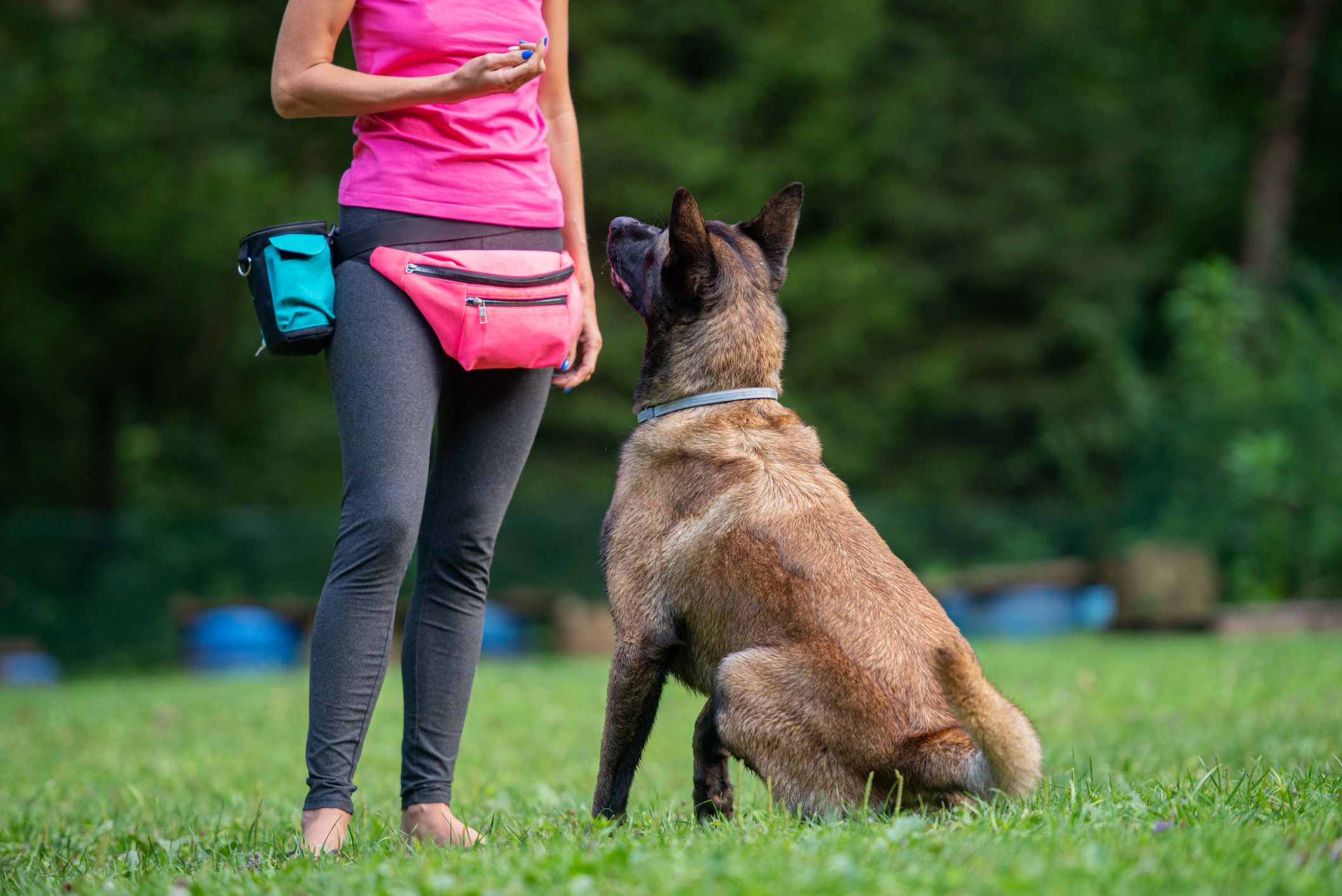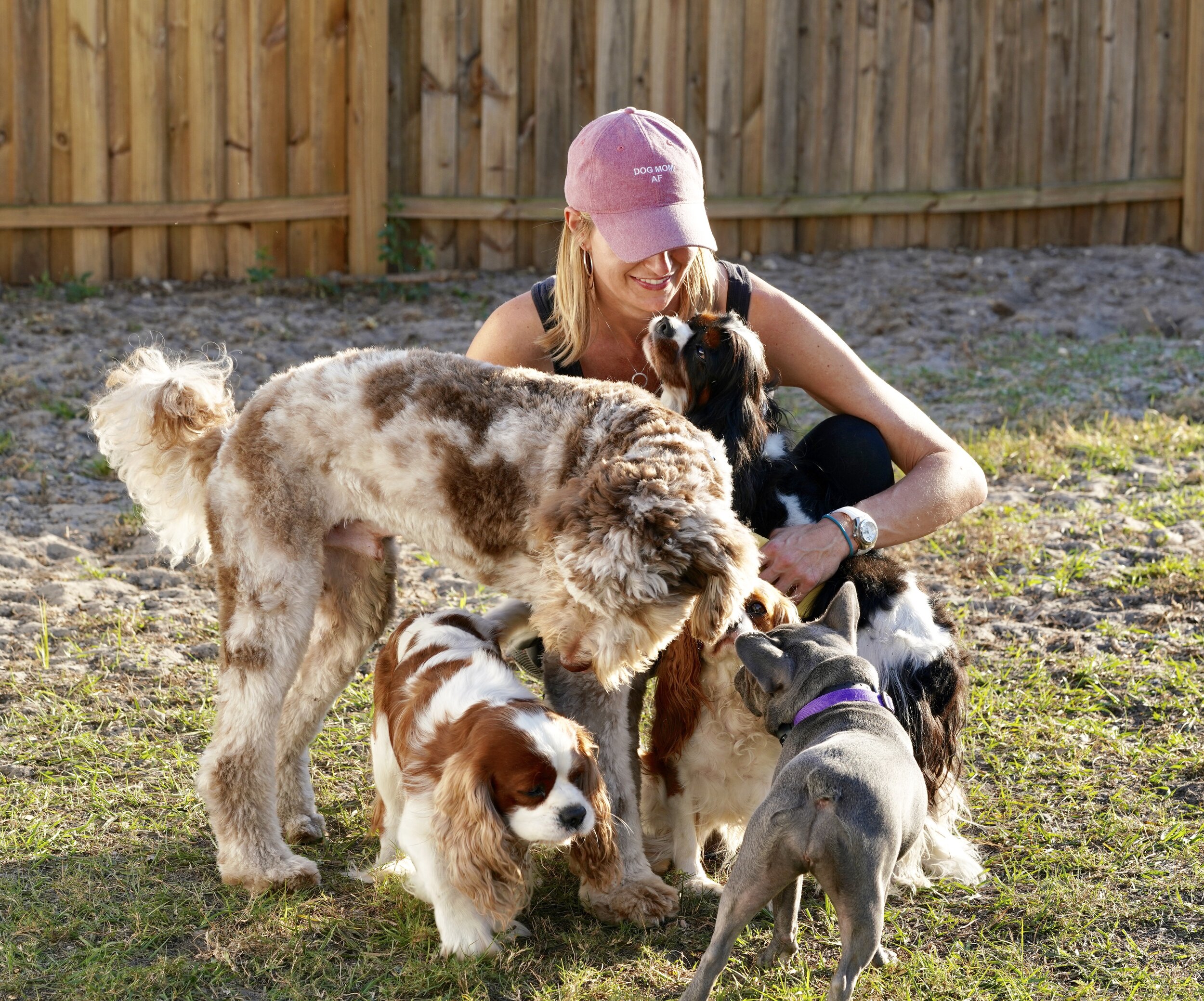Top Dog Training For Dogs Providers to Improve Habits and Abilities
Wiki Article
Top Canine Educating Methods for each Stage of Your Pet's Life
Effective dog training is important at every phase of a canine's life, as each phase offers special challenges and opportunities for growth - Dog Training For Dogs. From the fundamental bonding techniques essential for pups to the tailored approaches required for senior pet dogs, understanding these crucial periods can dramatically improve the human-animal bond. It is very important to recognize that training should advance together with a pet dog's growth, making certain that techniques continue to be effective and appropriate. What certain methods can be utilized to deal with the varying needs of your canine as it matures? The solution might surprise you.Puppy Training Fundamentals
Puppy training fundamentals prepared for a well-behaved adult pet and involve a number of vital parts that need to not be overlooked. The first stage of training concentrates on establishing a solid bond between the pup and its proprietor, which is critical for efficient interaction. Socializing is extremely important; exposing pups to different environments, individuals, and various other animals helps them establish confidence and flexibility, decreasing the probability of behavioral issues later on in life.Basic commands, such as sit, remain, and come, develop the structure of obedience training. Making use of positive reinforcement techniques, such as deals with and appreciation, motivates wanted actions and fosters a positive discovering experience. Consistency in commands and training sessions is essential, as puppies thrive on regular and structure.
Additionally, residence training is an essential element of puppy training. Establishing a normal routine for shower room breaks and utilizing marked areas can assist minimize mishaps and advertise good behaviors. On the whole, an all-round method to puppy training, integrating house, socializing, and obedience training, establishes the phase for a well-adjusted grown-up canine, guaranteeing a harmonious partnership in between the pet and its proprietor.
Teenage Behavior Administration
As young puppies grow right into adolescents, their actions can change significantly, usually presenting new difficulties for proprietors. This developmental phase, commonly happening between 6 months and 2 years, is marked by increased energy levels, interest, and a burgeoning feeling of self-reliance. Recognizing these adjustments is crucial for efficient behavior administration.Teens might show rebellious propensities, such as ignoring commands they previously grasped or taking part in destructive habits. Consistency in training stays critical; reinforcing discovered behaviors through favorable reinforcement can aid counteract these challenges. Short, appealing training sessions are vital to maintain their rate of interest and focus.

Additionally, developing an organized regimen can dramatically enhance a teenage canine's complacency. Regular workout is essential to carry their energy positively, lowering the chance of undesirable behaviors. By utilizing these methods, owners can efficiently navigate the complexities of adolescent actions, promoting a well-adjusted, pleased canine companion.
Adult Dog Obedience Techniques

Favorable support remains a key technique; gratifying good actions with deals with, praise, or playtime urges conformity. Consistency is important; the very same commands and incentives must be made use of by all household participants to prevent complication.
Incorporating training right into daily routines can likewise work. Practice commands during strolls or dish times, permitting training to blend perfectly into everyday life. Involving in structured tasks, like agility programs or obedience classes, can better enhance a canine's skills while providing important socialization chances.
It is necessary to acknowledge that adult canines may likewise display stubbornness or complacency. Changing training techniques to preserve their interest, such as differing incentives or introducing new commands, can help receive motivation. Overall, an ongoing dedication to obedience training will cultivate a mannerly and anchor well balanced adult canine.
Elderly Pet Dog Adaptation Methods
Acknowledging the unique requirements of senior canines is important for guaranteeing their comfort and well-being. As pet dogs age, they may experience a decline in wheelchair, vision, and cognitive feature, requiring tailored adjustment approaches.First, take into consideration changing the living setting. Guarantee that the home is risk-free and available; eliminate challenges and offer non-slip surface areas to stop drops. In addition, take into consideration utilizing actions or ramps to assist them access their preferred spaces.
Secondly, exercise must be adjusted to make up reduced stamina and joint health (Dog Training For Dogs). Take part in shorter, more regular walks, and integrate mild tasks like swimming, which can be advantageous for arthritic joints
Moreover, psychological stimulation continues to be important. Usage basic problem toys or participate in scent work to keep their minds sharp, while preventing overwhelming tasks that might annoy them.
Lastly, routine vet exams are vital to keep track of health and wellness changes and readjust care routines as necessary. By executing these adjustment strategies, you can improve the quality of life for your elderly canine, guaranteeing they age beautifully and pleasantly.
Lifelong Discovering and Enrichment
imp sourceWhile pet dogs of all ages benefit from finding out and mental excitement, long-lasting enrichment is specifically crucial for maintaining cognitive health and wellness and emotional health in both senior and younger dogs. Engaging activities not only enhance a dog's top quality of advice life yet additionally enhance the bond in between the pet and its proprietor.
Enrichment can take different kinds, consisting of interactive playthings, puzzle feeders, and aroma job, which stimulate a pet dog's detects and motivate analytic. Normal training sessions, incorporating brand-new commands or tricks, keeps their minds sharp and promotes a sense of accomplishment. Socialization with other pets and individuals is similarly essential, as it assists stop behavior issues and fosters adaptability.
In addition, incorporating exercise right into a pet's routine is important for total wellness. Tasks like agility training, bring, or long walks provide both psychological and physical excitement, making certain pet dogs stay happy and engaged.
Last but not least, take into consideration varying the environment by introducing new areas for playdates or strolls. This adjustment can reignite a dog's inquisitiveness and enthusiasm for exploration. Lifelong discovering and enrichment not only add to a fulfilling life however likewise promote an unified connection with your canine buddy.
Final Thought
Reliable pet dog training strategies evolve throughout a dog's life, dealing with the unique needs of each developing stage. From establishing foundational abilities in puppies to taking care of teen actions, reinforcing obedience in adults, and adjusting strategies for senior citizens, a detailed approach guarantees optimum communication and habits. Stressing regular mental stimulation, socializing, and physical workout fosters a balanced and satisfying life for pets. Ultimately, regular application of these techniques contributes to an unified relationship in between pet dogs and their human friends.Effective pet training is important at every stage of a pet dog's life, as each phase provides special difficulties and possibilities for growth.Puppy training basics lay the groundwork for a well-behaved adult dog and entail several crucial parts that must not be neglected. Overall, a well-rounded method to puppy training, incorporating obedience, socialization, and home training, sets the phase for a well-adjusted adult pet, making sure a harmonious partnership between the pet dog and its proprietor.
Numerous dog proprietors may locate that grown-up canines, while normally even more secure in actions than their teenage equivalents, still require consistent training to keep obedience and good manners.Efficient dog training methods evolve throughout a dog's life, resolving the distinct demands of each developmental phase.
Report this wiki page